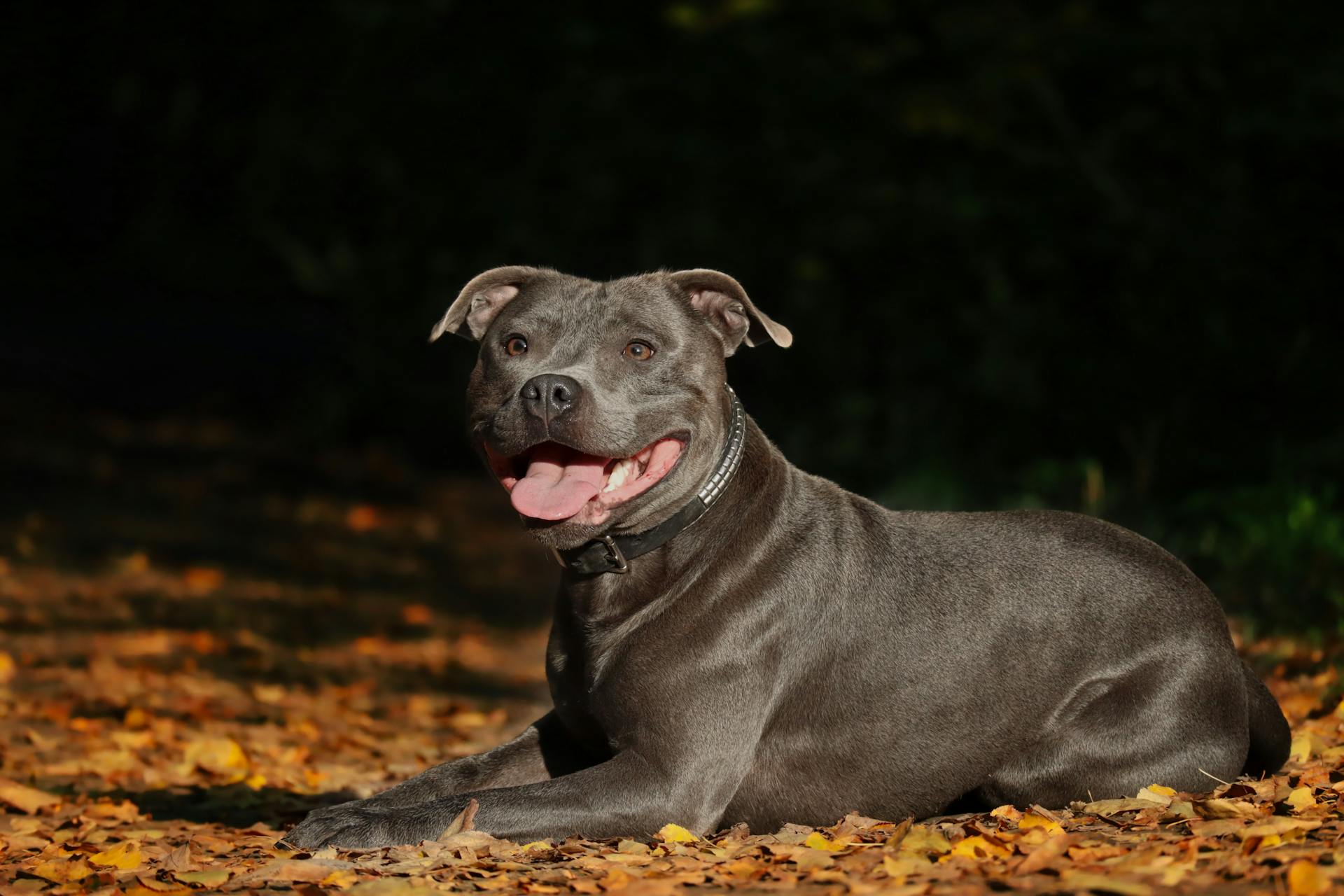
Shih Tzus are prone to skin problems due to their flat face and short nose, which can lead to breathing difficulties and increased moisture in their airways.
Their skin can become oily, leading to acne and blackheads.
Regular grooming is essential to prevent skin problems in Shih Tzus.
Brushing their coat at least twice a week can help reduce shedding and prevent matting.
Keeping their skin healthy also requires a balanced diet and plenty of fresh water.
Understanding Shih Tzu Skin Problems
Shih Tzus are prone to various skin problems, but being vigilant can help catch them early. Owners should observe their dogs for any signs of discomfort or unusual behavior.
Itching and scratching are the most common symptoms of skin problems in Shih Tzus. Constant scratching or biting at their skin can be a sign of a skin issue.
Hair loss is a common symptom of skin problems in Shih Tzus, and it may be localized or spread throughout the body. Owners should be aware of any changes in their dog's coat.
Rashes and redness are also indicators of a skin problem and may appear as bumps, scabs, or pimples. If you notice any unusual skin issues, consult with a veterinarian for proper diagnosis and treatment.
Common Skin Issues in Shih Tzus
Shih Tzus are prone to skin issues, including dermatitis, allergies, and infections. These conditions can cause inflammation, itching, redness, and swelling of the skin.
Dermatitis is a common skin condition that can be caused by allergies, skin infections, or other factors. Food allergies and sensitivities can also trigger allergic reactions and cause skin problems in Shih Tzus.
Bacterial and fungal infections can lead to itchy skin, flaky or crusty skin, and a strong odor. These infections can be caused by an imbalance of the skin's natural bacteria and fungi, or by an underlying health issue.
Shih Tzus may be genetically predisposed to certain skin conditions, such as yeast infections. These infections can cause hair loss, itching, and discomfort, and can be treated with topical medications or antibiotics.
Bacterial Infections
Bacterial infections can be a real nuisance for Shih Tzus, causing skin irritation and discomfort.
Redness, inflammation, and odor are common symptoms of bacterial infections in dogs, making them a problem for both your furry friend and you.
Bacterial infections can be caused by an imbalance in the skin's natural flora, which can be triggered by immune deficiencies or an increase in skin oils.
Certain breeds, including Shih Tzus, may be more prone to bacterial infections due to their skin type and genetic predisposition.
Excessive scratching, chewing, or licking can irritate the skin and lead to bacterial infections, often caused by allergies to medications, food, or environmental factors, or fleas.
A staph infection is a type of bacterial infection that requires a complete physical examination and may involve laboratory tests to diagnose and treat the underlying condition.
Mites
Mites are tiny parasites that live in the hair follicles of dogs, and adult mites are the size of the head of a pin. They're usually invisible to the naked eye.
It's normal for dogs to have mites, but they can cause problems when their numbers get too high. In fact, mites are present on all dogs.
Curious to learn more? Check out: Types of Shih Tzu Mixes
Mites feed on a dog's skin cells and blood, which can cause a lot of itching. This is a sign that your dog may be battling a mange infestation.
Demodectic mange is not contagious between animals or people, but it can cause hair loss or hot spots. If you notice signs of mange in your Shih Tzu, take action to prevent health problems.
Rash
Shih Tzus can develop skin rashes due to allergies, atopy, parasites, or skin infections. These rashes can be caused by exposure to the outside world, even with their fur protection.
Allergies can trigger itching, redness, and swelling of the skin, making your Shih Tzu uncomfortable. If you suspect an allergy, consult your vet for guidance.
Parasites can also cause skin rashes in Shih Tzus, and even a mild sunburn can be harmful due to their sensitive skin. Their skin is exposed to the elements, making them prone to skin problems.
Additional reading: Allergies on Dogs Belly
Rashes from dry skin and allergies are common in Shih Tzus and are not typically dangerous. However, if you suspect your dog might have mange or other skin problems, contact your vet for advice.
Dermatitis is a common skin condition that can cause inflammation in Shih Tzus, and food allergies and sensitivities can also cause skin problems, including itching, rashes, and other skin issues.
Bump
If you find a bump on your Shih Tzu's skin, don't touch it. You can cause complications like infection.
A red, swollen area on your dog's skin could be a sign of ringworm, a common fungal infection that causes a circular, ring-shaped lesion. It's often found on the ears, but can also appear on the groin, tail, armpits, and feet.
A yellow, pus-filled bump is a sign of a bacterial infection.
Environmental Factors
Shih Tzus can be sensitive to environmental allergens such as pollen, dust, and mites, which can cause itching, redness, and inflammation of the skin, leading to hot spots and other skin problems.
Dry air can cause skin to become dry and itchy, so using a humidifier can help add moisture to the air and improve skin health.
Keeping the living area clean and free of dust and other irritants can help prevent skin irritation in Shih Tzus.
Using a humidifier can also help to prevent dry skin, especially during the winter months when the air is dry.
Avoiding exposure to allergens such as pollen and dust can help reduce the likelihood of skin irritation in Shih Tzus.
Environmental factors play a significant role in skin problems in Shih Tzus, and managing them requires a multifaceted approach that may include medical treatments, dietary changes, topical solutions, and environmental control.
Diet and Nutrition
Shih Tzus can benefit from a hypoallergenic diet if they have food allergies that cause skin irritation.
Switching to a hypoallergenic diet may be necessary for some Shih Tzus to manage skin problems.
Adding probiotics to a Shih Tzu's diet can help improve gut health, which can in turn improve skin health.
Food allergies and sensitivities can cause skin problems in Shih Tzus, often triggered by ingredients like beef, chicken, and wheat in commercial dog foods.
Certain ingredients in dog food can trigger allergic reactions and cause itching, rashes, and other skin problems in Shih Tzus.
Check this out: Shih Tzu Medical Issues
Skin Conditions and Treatments
Shih Tzus are prone to skin problems, and it's essential to address them promptly to prevent further irritation and potential infections. Medical treatments are available, including antihistamines for allergic reactions and antibiotics for bacterial or fungal infections.
Antibiotics can be prescribed to clear up infections, but it's crucial to consult with a veterinarian before starting any treatment. Supplementing your Shih Tzu's diet with omega-3 fatty acids and vitamins can also improve skin health and reduce inflammation.
Coconut oil is a natural remedy that can be applied topically to soothe irritated skin and reduce inflammation. Fish oil supplements, rich in omega-3 fatty acids, can also be used to reduce inflammation and improve skin health.
Yeast dermatitis is a common cause of skin disease in dogs, characterized by thickened skin, flaky or crusty skin, redness, and itchiness. Fungal infections can also cause skin problems, including bacterial and fungal skin infections.
Here are some common signs of skin problems in Shih Tzus:
- Thickened skin or "elephant skin"
- Flaky, crusty or scaly skin
- Redness and itchiness
- Musty odor
- Recurrent or chronic ear infections (otitis externa)
- Hyperpigmentation
Your veterinarian may recommend a variety of treatments, including veterinary shampoo, a diet change, or medications. It's essential to consult with a veterinarian to determine the best course of treatment for your Shih Tzu's individual circumstances.
Prevention and Maintenance
Regular grooming is essential to maintain the health of a Shih Tzu's skin. Brushing and combing your Shih Tzu's hair daily can help remove tangles and mats before they become a problem.
Daily brushing and combing can prevent skin irritation and infection caused by matted and tangled hair. It's also a great way to bond with your Shih Tzu.
Bathing your Shih Tzu every 4-6 weeks using a gentle shampoo specifically designed for dogs can help maintain healthy skin.
Additional reading: Shih Tzu No Fur
When to Visit the Vet
If your Shih Tzu is experiencing excessive itching, redness, or inflammation of the skin, it's time to visit the vet. Severe or persistent skin issues require professional attention to prevent further complications.
If you notice your Shih Tzu losing hair or having bald patches on its skin, it's a sign that something's amiss. Open sores, scabs, or crusty areas on the skin also warrant a vet visit.
Excessive scratching or licking can be a sign of skin problems, so keep an eye out for these behaviors. Skin infections that don't improve with home remedies need medical attention.
A veterinarian with experience in treating Shih Tzu skin problems can help identify the underlying cause and provide appropriate treatment. They may perform skin tests, prescribe medication, or recommend changes to your Shih Tzu's diet or grooming routine.
Here are some situations that require a vet visit:
- Excessive itching, redness, or inflammation of the skin
- Losing hair or having bald patches on the skin
- Open sores, scabs, or crusty areas on the skin
- Skin infections not improving with home remedies
- Excessive scratching or licking
By recognizing these signs and seeking veterinary care, you can help your Shih Tzu get the treatment it needs to stay healthy and happy. Regular health monitoring and preventive care can also help prevent skin problems from occurring in the first place.
Related reading: Shih Tzu Puppy Care
Frequently Asked Questions
What does contact dermatitis look like?
Contact dermatitis typically appears as a pink or red, itchy rash at the point of contact with an allergen, which can be flat or raised and sometimes blistered.
What can I put on my Shih Tzus dry skin?
For dry skin on your Shih Tzu, consider using coconut oil, olive oil, or plain, unsweetened yogurt to help soothe and moisturize their skin. These natural ingredients can provide relief and promote healthy skin when used as part of a balanced skincare routine.
How do I moisturize my Shih Tzu?
To moisturize your Shih Tzu, apply warm coconut oil to their skin and coat, and use commercial moisturizers on their nose and paws. Regular moisturizing can help soothe and protect your dog's sensitive skin.
Why do Shih Tzu have dandruff?
Shih Tzus are prone to dandruff due to overactive sebaceous glands, which produce excessive sebum, causing an imbalance that leads to flaky skin
What can I give my dog to stop itching naturally?
For natural relief from itching, consider adding soothing ingredients like chamomile, calendula, or green tea to your dog's bath. These natural remedies can help calm itchy skin and reduce inflammation.
Sources
- https://blog.tryfi.com/shih-tzu-skin-problems/
- https://www.guilfordjamestownvet.com/site/blog-greensboro-vet/2020/11/30/bacterial-fungal-skin-infections-dogs
- https://www.rubold.com/blogs/dog-grooming-tips/10-most-common-dog-skin-problems-with-pictures
- https://vetericyn.com/blog/my-dog-has-dry-flaky-skin-and-scabs-what-do-i-do/
- https://www.merckvetmanual.com/dog-owners/skin-disorders-of-dogs/hyperpigmentation-acanthosis-nigricans-in-dogs
Featured Images: pexels.com


